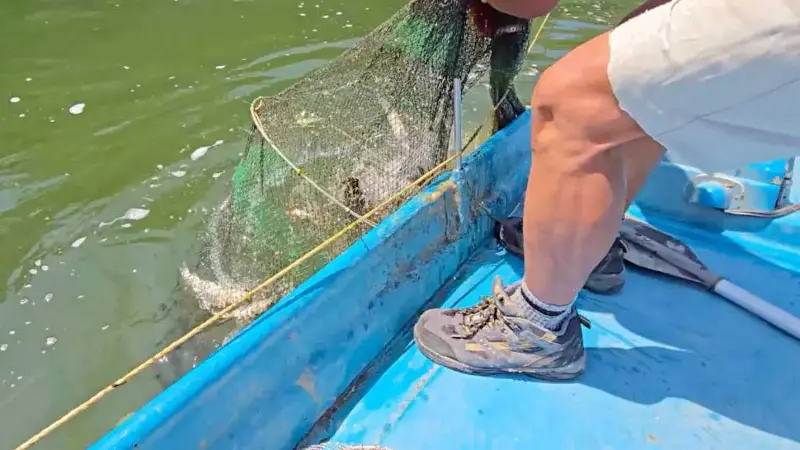
The Namhan River crosses Danyang in Chungcheongbuk-do. This place has long been known as a place where rare fish such as sardines are often caught. Recently, various unexpected fish species have been discovered through actual fishing in the lower reaches of the Namhan River, and the biodiversity of this river is once again attracting attention.
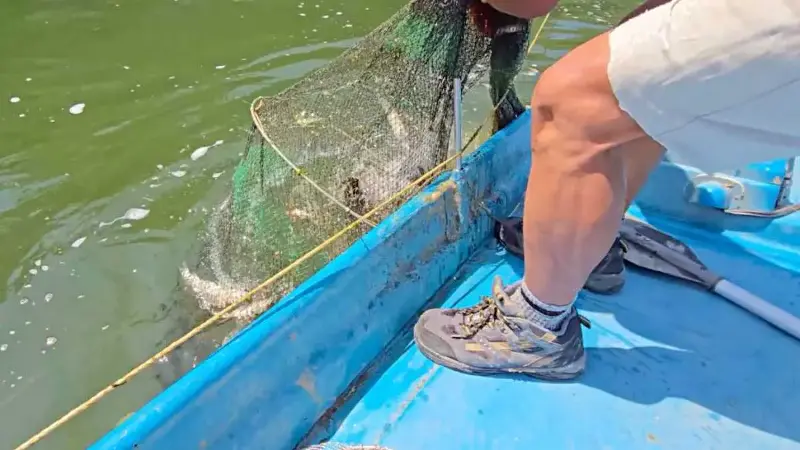
According to a video posted on the YouTube channel “TV Biogama” on the 8th, the YouTuber Biogama recently took a boat with local fishermen to work near the underwater boat. Although some changes have been detected, such as fishermen's testimonies that catches have decreased noticeably since the installation of underwater boats, various fish species that stick out of the net still prove the strength of the natural ecosystem that this river harbors.
The operation began through a “amortization network” in the form of a guide network installed on the river. From the first net, large microbes were captured and caught the eye. Miyugi are a species of catfish, but they are distinguished from ordinary catfish because they have a slender, elongated body and no prism pattern. In this operation, a number of large microbes were identified, which is rare.
Most crucian carp were about 3 kg tall, and they were large enough to be admired even by fishermen. Famous for their beautiful color, jellyfish, eels, etc. were also caught in a line, and a rare scene where a young man appeared with a fish door was also captured. Since then, eels, catfish, and giant peaches have also been identified in the Tongbal industry. Daenonggang has a unique characteristic of turning golden when it comes out of the water, and the spines on its dorsal fin are sharp, so care must be taken.
The video showed a comparison of the differences between miyugi and catfish, and also showed the aspect of being a biological encyclopedia. Miyu fish have very small dorsal fins and a slender body, while catfish have a large head ratio and a clear prism pattern. You can intuitively check the differences between two similar fish species through body shape, pattern, and dorsal fin size.
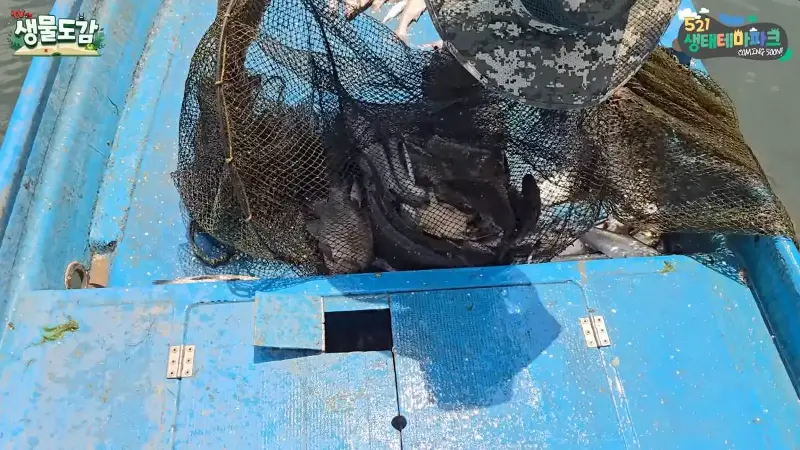
What is interesting is that the fish species caught were clearly different depending on the fishing location. In the upper reaches, yellowtail meat and millet were mainly caught, and as they descended downstream, catfish, eels, and large fish mainly appeared. This is an example showing how ecological conditions based on water depth, flow rate, and underwater coverage affect the distribution of fish species.
A scene of hundreds of freshwater cormorants floating on the river in groups during operation was also noticeable. Since cormorants eat close to 1 kg of fish per day, it is considered another factor that worsens tide conditions for fishermen. In some regions, concerns about ecosystem disturbances have been raised due to the increase in the population of Kang Jun-chi, a native fish species. Kang Jun-chi is low in weight and has many thorns, so its edible value is declining, and some local governments are in the process of eradicating it.
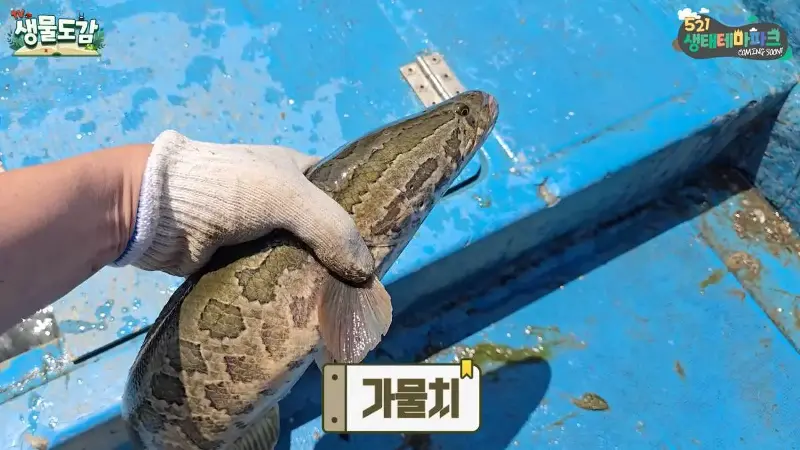
An unexpected fish species also appeared in the middle of the video. Many young slang fish were caught in nets, and even trout were identified. Trout is a fish species with sharp teeth and an unusual appearance. Most of them grow on aquaculture farms, but it is an unusual scene to be caught in natural conditions. The thick mouth of silverfish is due to the ecological characteristics of living by scraping moss from rocks.
Local fishermen stated that the tide was “not good,” but the fish species identified in the actual video were diverse and in excellent condition. In addition to crucian carp, eel, spiny lobster, and large peafowl, many rare species of miyugi and yellowtail have also been discovered. According to fishermen, the tide is better during the season when it rains a lot and the water flow becomes stronger. The Namhan River is a space where biodiversity still lives and breathes, and it was a space that proved its ecological value even in the midst of changes since the installation of underwater walkways.
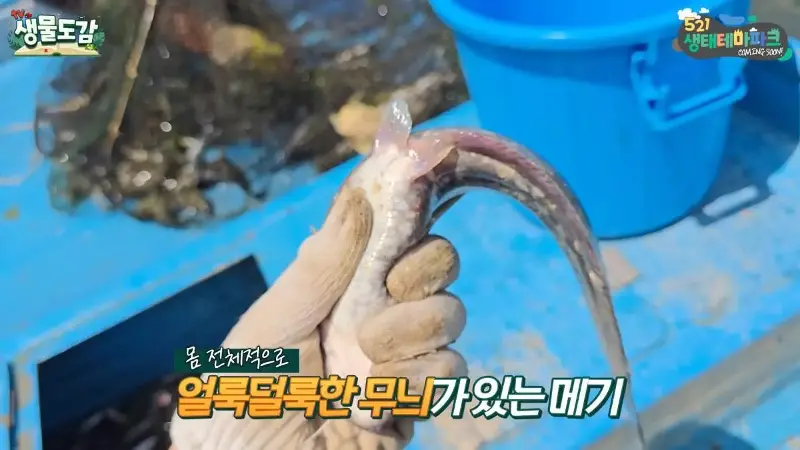
Miyugi: Seated in the upper reaches of Gaegok, similar to a catfish, but a slender figure
Catfish: common catfish, fish with a prismatic pattern: Many large individuals up to 3 kg
True meat: spawning in shellfish, excellent color development
Upland: small fish species, foal zone habitat
Eel: Catch from both sides of tong bal and gang
Zara: Many young individuals appear biting fish
Daenonggang: Be careful of golden discoloration and thorns
Kang Jun-chi: Concerns about ecosystem disturbance due to excessive numbers
Phagasari (verb): Distinguished from zebra verb by whether or not the pattern continues
Slang: Young individuals appear, growing rapidly in summer
Trout: An unusual catch that looks like it just came from a fish farm
Carp: Big but fatty, not preferred for fish
Nooch: Captured but mostly released
Gamblers: Capturing large individuals between 60 and 70 cm
